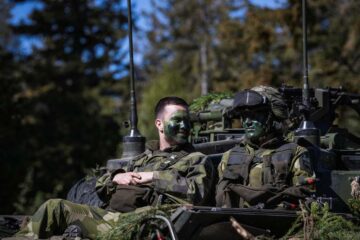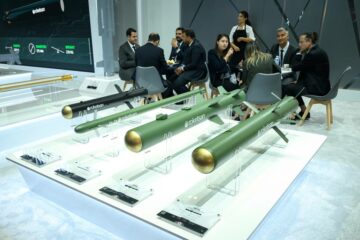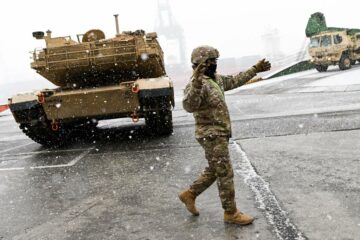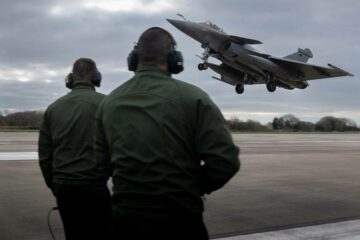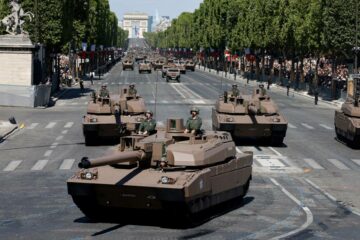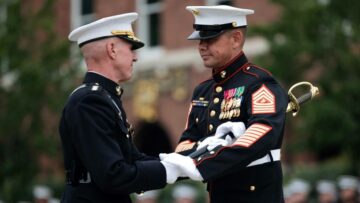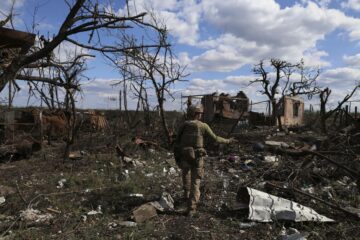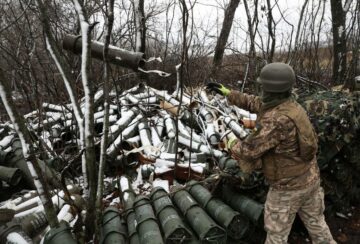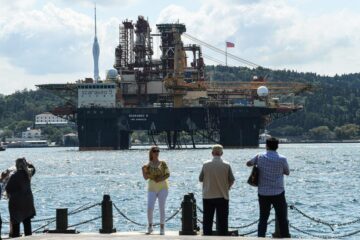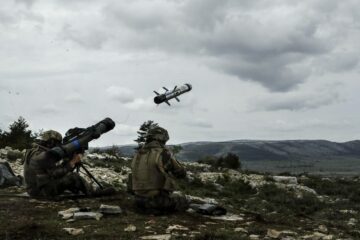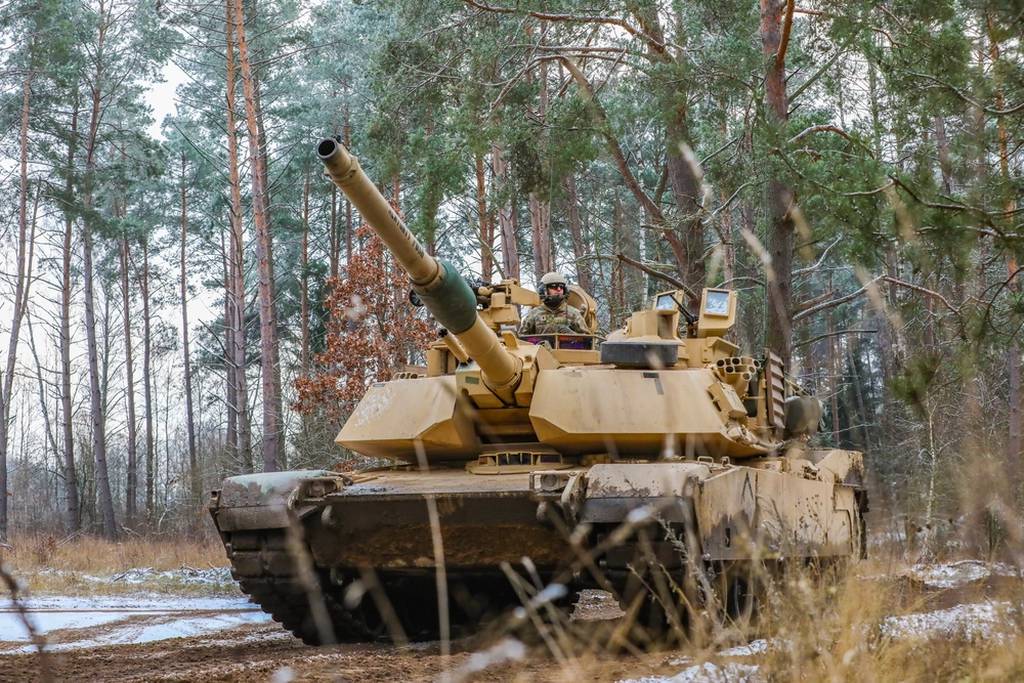
MILAN – Amid calls for a common European military to stand up to an aggressive Russia and other potential threats, EU members Slovenia, Spain, Denmark and Poland say the idea is unrealistic and unnecessary.
“The EU should have its own army,” Foreign Minister Antonio Tajani of Italy, a founding member of both the trade bloc and NATO, said in an interview with Italian newspaper La Stampa last month. The official proposed that the fighting force could be involved in peacekeeping missions and preventing conflict.
However, even with war now raging in Europe and a push for stronger defense cooperation across the continent, the proposal hasn’t gained much traction. For starters, there’s little consensus among the 27 nations of the EU on the need for such a force.
“The establishment of this common defense — a necessary framework for the development of a ‘European Army’ – would require a unanimous decision of the Council,” the Spanish Ministry of Defense said in a statement. “If achieving this requirement was almost impossible in 1992, when the EU was composed of 12 member states, a decision by an EU of 27 or more countries in the future, would be very difficult to take – in this context the idea is unrealistic or unaffordable in the near future.”
Furthermore, Europe already has a defense force in NATO, making a separate European-only force unnecessary, according to Denmark, also a member of both organizations.
“NATO is the cornerstone of our collective security, and defense remains a matter of national sovereignty – there is no NATO or EU army, but close defense cooperation between allies and member-states,” the Danish defense ministry said in a statement. “Denmark does not support establishing an EU army.”
This question is also not on the agenda of Slovenia, Aleš Sila, the official responsible for strategic communications at the country’s Ministry of Defense, told Defense News.
In the past, a challenge that has loomed over the EU in regard to successfully achieving the bloc’s priorities has been that member-states tend to implement their defense plans at the national level.
This finding was highlighted in the 2022 Coordinated Annual Review on Defense Report published by the European Defense Agency. The document also found that most EU countries are also part of NATO, and see the military alliance as their primary multilateral orientation.
It is Poland’s view that the two should be seen as complementary rather than as incompatible.
“Poland does not neglect EU actions in the security and defense area – [EU actions] should become complementary to strengthen NATO efforts and contribute to trans-atlantic security,” the Polish ministry of defense said in a statement.
New initiatives, similar roles
The consensus shared by three of the four member-states was that other initiatives have been established that will play a similar role to that of a European army and provide similar capabilities.
The Slovenian, Spanish and Polish ministries all pointed to the development of the EU’s Rapid Deployment Capability, which by 2025 aims to allow the swift deployment of a modular force of up to 5,000 troops in non-permissive environments.
The first RDC deployment exercise took place in Spain in October, during which nine European countries contributed 2,800 military personnel and equipment. The participating states included Austria, Spain, France, Hungary, Ireland, Italy, Malta, Portugal and Romania.
Additional cooperative measures are also being taken amongst other EU member-states individually, as highlighted by the Polish MoD.
“It is our goal to tighten defense cooperation within EU countries, which was manifested on Jan. 30, when the head of the MoD signed a letter of intent on military redeployment procedures with the ministers of the Netherlands and Germany,” it said,
The document, although different from a common military, will facilitate and accelerate the movement of allied troops across the three countries.
Elisabeth Gosselin-Malo is a Europe correspondent for Defense News. She covers a wide range of topics related to military procurement and international security, and specializes in reporting on the aviation sector. She is based in Milan, Italy.
- SEO Powered Content & PR Distribution. Get Amplified Today.
- PlatoData.Network Vertical Generative Ai. Empower Yourself. Access Here.
- PlatoAiStream. Web3 Intelligence. Knowledge Amplified. Access Here.
- PlatoESG. Carbon, CleanTech, Energy, Environment, Solar, Waste Management. Access Here.
- PlatoHealth. Biotech and Clinical Trials Intelligence. Access Here.
- Source: https://www.defensenews.com/global/europe/2024/02/05/eu-member-countries-push-back-on-italys-call-for-european-army/
- :has
- :is
- :not
- $UP
- 000
- 10
- 12
- 2%
- 2022
- 2025
- 27
- 30
- 5
- 70
- 800
- a
- accelerate
- According
- achieving
- across
- actions
- agency
- agenda
- aggressive
- aims
- All
- Alliance
- allow
- almost
- already
- also
- Although
- Amid
- among
- amongst
- an
- and
- annual
- ARE
- AREA
- Army
- AS
- At
- Austria
- aviation
- back
- based
- BE
- become
- been
- being
- between
- bloc
- both
- but
- by
- call
- Calls
- capabilities
- capability
- challenge
- Close
- Collective
- Common
- Communications
- complementary
- composed
- conflict
- Consensus
- context
- continent
- contribute
- contributed
- cooperation
- cooperative
- coordinated
- cornerstone
- could
- Council
- countries
- country’s
- covers
- danish
- decision
- Defense
- Denmark
- deployment
- Development
- different
- difficult
- document
- does
- during
- efforts
- environments
- equipment
- established
- establishing
- establishment
- EU
- Europe
- European
- European Countries
- Even
- Exercise
- facilitate
- fighting
- finding
- First
- For
- Force
- foreign
- founding
- four
- Framework
- France
- from
- future
- gained
- Germany
- goal
- Have
- head
- Highlighted
- HTTPS
- Hungary
- idea
- images
- implement
- impossible
- in
- included
- incompatible
- Individually
- initiatives
- intent
- International
- Interview
- involved
- ireland
- IT
- Italian
- Italy
- ITS
- Jan
- jpg
- la
- Last
- letter
- Level
- little
- Making
- Malta
- manifested
- Matter
- measures
- member
- Members
- MILAN
- Military
- minister
- ministers
- ministry
- missions
- modular
- Month
- more
- most
- movement
- much
- multilateral
- National
- Nations
- Near
- necessary
- Need
- neglect
- Netherlands
- news
- nine
- no
- now
- october
- of
- official
- on
- or
- organizations
- Other
- our
- Outlook
- over
- own
- part
- participating
- past
- Personnel
- Place
- plans
- plato
- Plato Data Intelligence
- PlatoData
- Play
- Poland
- Polish
- Portugal
- potential
- preventing
- primary
- procedures
- procurement
- proposal
- proposed
- protection
- provide
- published
- Push
- push back
- question
- raging
- range
- rapid
- rather
- regard
- related
- remains
- report
- Reporting
- require
- requirement
- responsible
- review
- Role
- Romania
- Russia
- Said
- say
- sector
- security
- see
- seen
- separate
- shared
- she
- should
- signed
- similar
- Slovenia
- slovenian
- sovereignty
- Spain
- Spanish
- specializes
- stand
- starters
- Statement
- States
- Strategic
- Strategic Communications
- Strengthen
- stronger
- Successfully
- such
- support
- SWIFT
- Take
- taken
- tend
- than
- that
- The
- The Future
- the Netherlands
- the security
- their
- There.
- this
- threats
- three
- tighten
- to
- told
- took
- Topics
- traction
- trade
- two
- unnecessary
- very
- View
- war
- was
- when
- which
- wide
- Wide range
- will
- with
- within
- would
- zephyrnet

